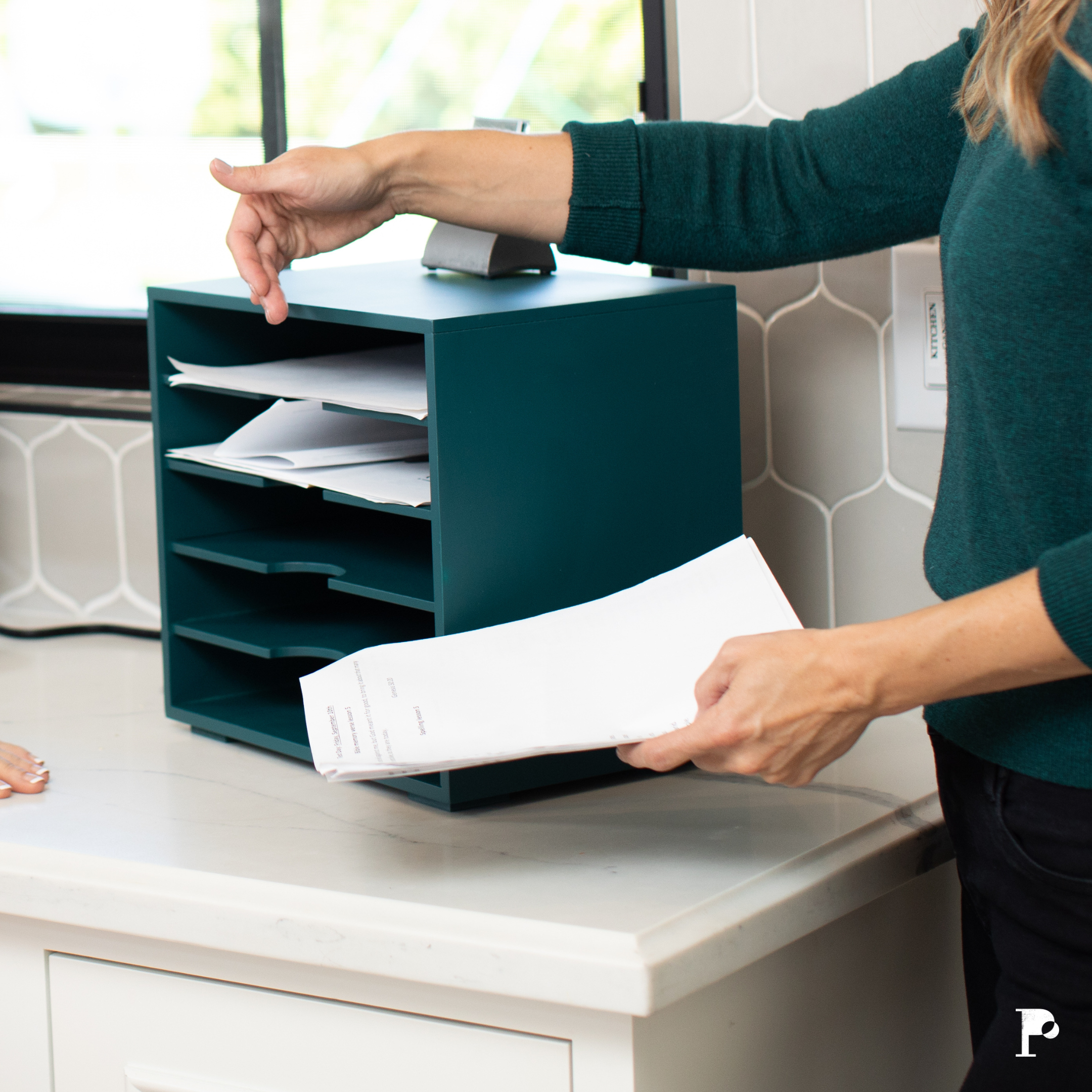We are always experiencing life transitions and there can be a sense of restlessness as we struggle to re-establish a routine and schedule that fits best for our life stage and situation. Life transitions are often times determined by uncontrollable events, such as going back to school, a birth, a death, or simply the changing of the leaves that forces us to stay inside most days. Each transition requires a shift in how we operate and view our schedule. Sometimes the shift requires no extra thought and it’s a natural change. And other times we don’t even realize we need to shift; that the reason we feel lost or unable to get things accomplished is because life slowly changed.
As I write this, hundreds of thousands of moms are experiencing a change like this, having recently put their kids back on the bus to start the school year. Some are jumping for joy while others are secretly wishing their little ones would never grow up. Many moms [or dads] are trying to find their new routine as they have more “free” hours in their day.
For me, I don’t have kids to put on the school bus [and I’d probably be crying if I had to say good-bye], but I do have a husband whose career is seasonal and I feel the effects of the community transitioning as kids are on a set schedule and evening activities build back up. And I am approaching the one-year anniversary of a huge life-changing event and it makes me reflect on how my routine has changed, or needs to change, in light of the natural life shifts.
We need some structure back in our days and the routine needs to be refreshed.
Where are you at? Do you feel a little out of sorts in your schedule and routine? Or my favorite Dutch word of “benauwd,” which sums up my state so often, meaning closed in, stuffy, uncertain, or not yourself?
 Wherever you are at, there are a few ways to reboot your routine and mindset. Some intentional refocusing can and will transform your days and schedule.
Wherever you are at, there are a few ways to reboot your routine and mindset. Some intentional refocusing can and will transform your days and schedule.
First, can you identify what has caused you to land in this state of mind? There’s no right or wrong answer, but it’s important to reflect if there is a reason you’ve arrived here. It could be as simple as: “I stopped exercising” or “I stopped using the calendar I loved” or more major: “I moved” “I changed jobs” “I had surgery” or “My son moved out.” By identifying this, you can determine how things were going before this change. Were you satisfied before, during or after? What was working in your schedule then? What wasn’t? Keep these things in mind as you do the next two steps.
Second, set the timer for 15 minutes and write out your current priorities. I believe that as we weave through life, our priorities shift, but we tend to hold on to the ones of our younger years. Even if your priorities haven’t changed, it’s important to re-connect with them.
Third, now that you have clear priorities, you need to plan your schedule and routine. And not just in your head. I recommend you do time blocking for the next two weeks, which means you physically write out what you will be doing each day. This will make your days more productive because you’re thinking and anticipating your schedule ahead of time. Do this on Sunday evenings or Monday mornings, by:
1] write a list of everything you need to accomplish for the week, on a piece of scrap paper. Including simple things like, grocery shop.
2] on a calendar or piece of paper divided by day of the week, add the pre-scheduled appointments [hair cut, watch grandkids, client meeting, school pick up] to give the shape to your week.
3] then, here’s the hard part, add the items from the to-do list to the calendar, giving them specific times of day to accomplish. For most people, it will help you to specifically put “pay bills” from 8-10:30a. For others, assigning it to “morning” will be enough accountability. Do this for each item on your to-do list, being sure to leave some white space each day for things that come up, or adjusting for general life happenings. This may seem too structured for some personalities, but if you’re not getting things accomplished, I challenge you to try it for a week.
Each evening or morning you need to review your schedule and re-adjust based on what you did or didn’t accomplish. It’s ok to move things to another day if things took you longer than expected. The whole point is to become aware and accountable to your time and actually getting things accomplished. For even the most organized person, if you are haphazardly doing things, you will never really move forward without a plan. After doing this one week, you will quickly learn how you operate and where you realistically spend your time. Re-adjust how you approach the scheduling, and do it for a second week.
One thing I’ve learned by doing this, is I need to leave Friday’s schedule more open because there are always tasks I had to cut out earlier in the week for time sake, and Fridays are a great make-up day. Plus, by Friday I’m not nearly as motivated as I am on Monday’s. [anyone else?!] Here is a blank schedule to help you with time blocking, if you need something simple to get you started.
Fourth, look to see if your priorities are reflected in your time blocking. The misconception is that priorities are where you spend the most of your time, but that is false. Priorities are the non-negotiables in your schedule, and life. The must do, must invest in, to keep your life balance whole. Are they represented in your schedule? And at the end of the first week, did you plan your to-do list well enough so that those priorities are getting the attention they need along side all the mundane tasks? If the answer is no, re-evaluate your to-dos and your time blocking. If you have so many “to-dos” that you can’t cook a healthy meal for your family to enjoy together [if that’s your priority], then you obviously need to adjust or cut out something. And that’s where the challenge comes in. You can put it all on paper, but if it doesn’t work, and doesn’t satisfy, it’s not working. Adjust and re-adjust until the priorities are met and present. And if you say, “I just don’t have time” then you must remove something. Even if you “can’t,” you must. No task, job, volunteer activity, garden work, or appointment is worth missing the precious moments of that make our lives flourish. Schedule clutter is a real thing and sometimes you need to purge it to make space. If you need to put “read to my child” on the calendar to be sure it gets done, there is no shame in that. That shows it’s that important to you to schedule in. [and I promise you’ll feel great when you have your priorities in place.]
Lastly, create a small daily routine for yourself. If you don’t have a job with set hours or kids schedule to give you structure in the morning, you need to discipline yourself into a routine. Especially in the mornings. That doesn’t mean you have to be up before the sun, but the way you start each day sets the tone for the rest of your day. Your morning routine may change seasonally, but you will accomplish more, if you have a plan to jump into each weekday morning.
Personally, when I switched to a more flexible job schedule to start The Proper Place, I loved that my mornings were no longer rushed and I could enjoy my coffee over GMA. But over time, I realized that I didn’t accomplish much on the days I didn’t have clients scheduled early to get me out the door, and I was falling into a dangerous rut. I had became the prime example of someone who had a life transition without being pro-active and one day realized I wasn’t satisfied with how life was unfolding and felt out of sorts…I wasn’t diligent in my routines and schedule, and therefore was missing out on the best things on my priority list.
Without an intentional schedule, I was left feeling guilty that I should have been working when I was home, or that I should have been home when I was working. Tasks lingered over my head, but never got accomplished. I needed structure, even in the simplest form. Time blocking helped me figure out when I could get things done, and set my mind at ease that I would get things done, all while reflecting my priorities.
So we return to the initial question: Where are you at? Do you need a reboot?




